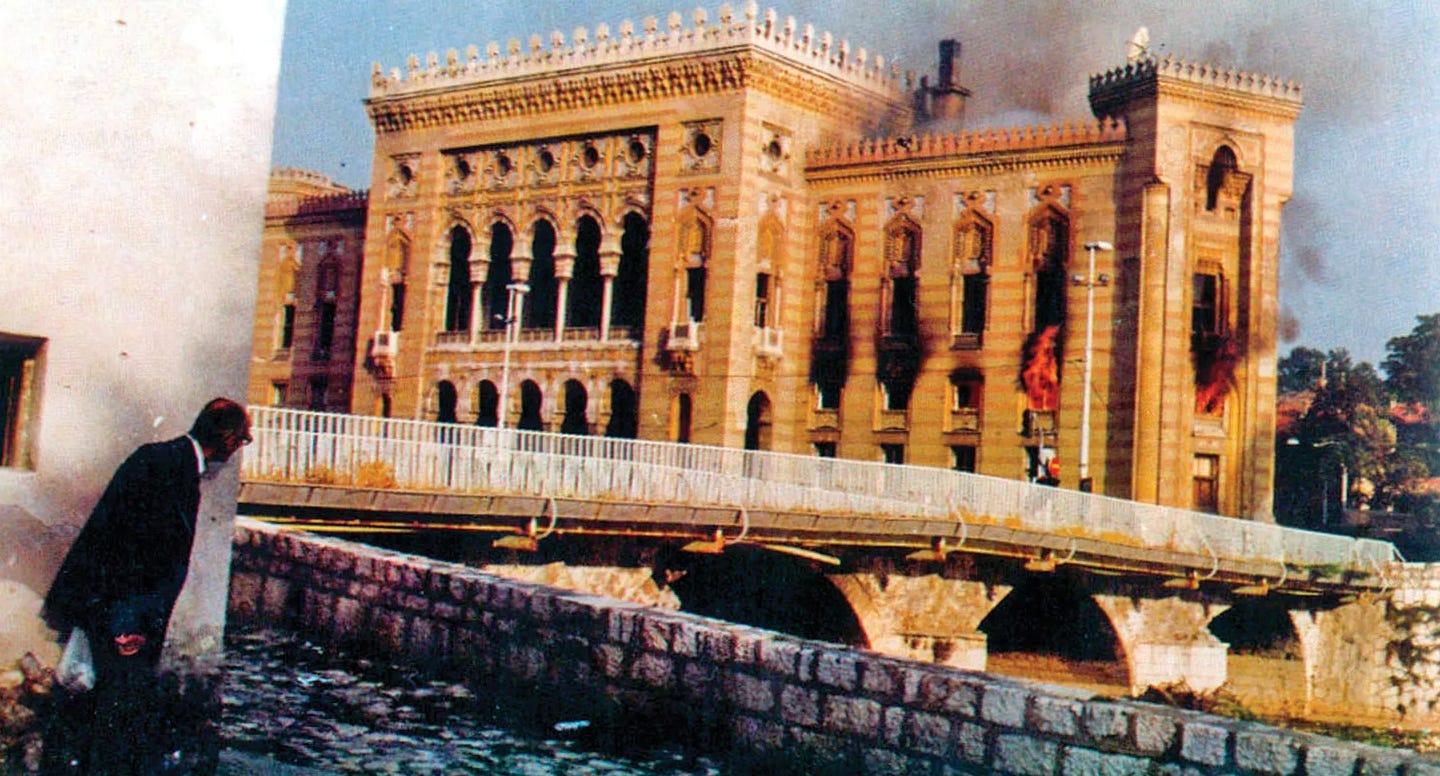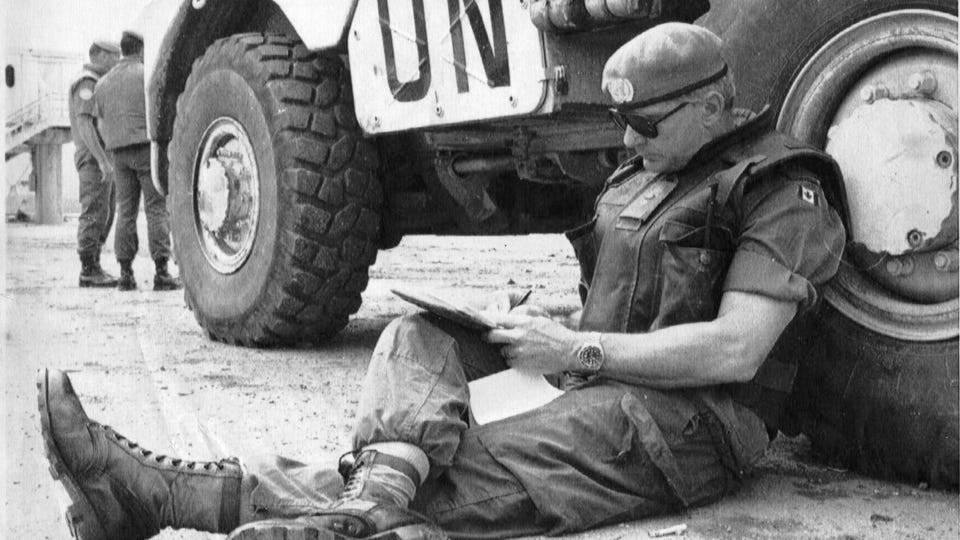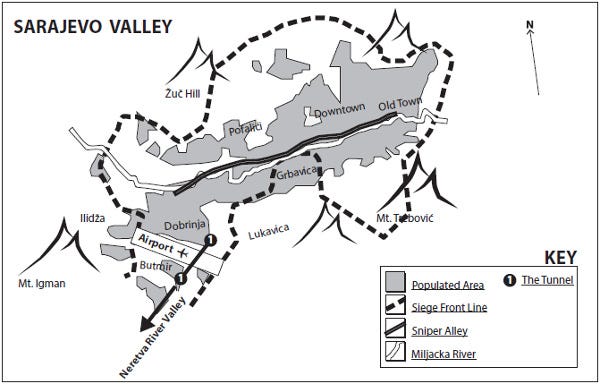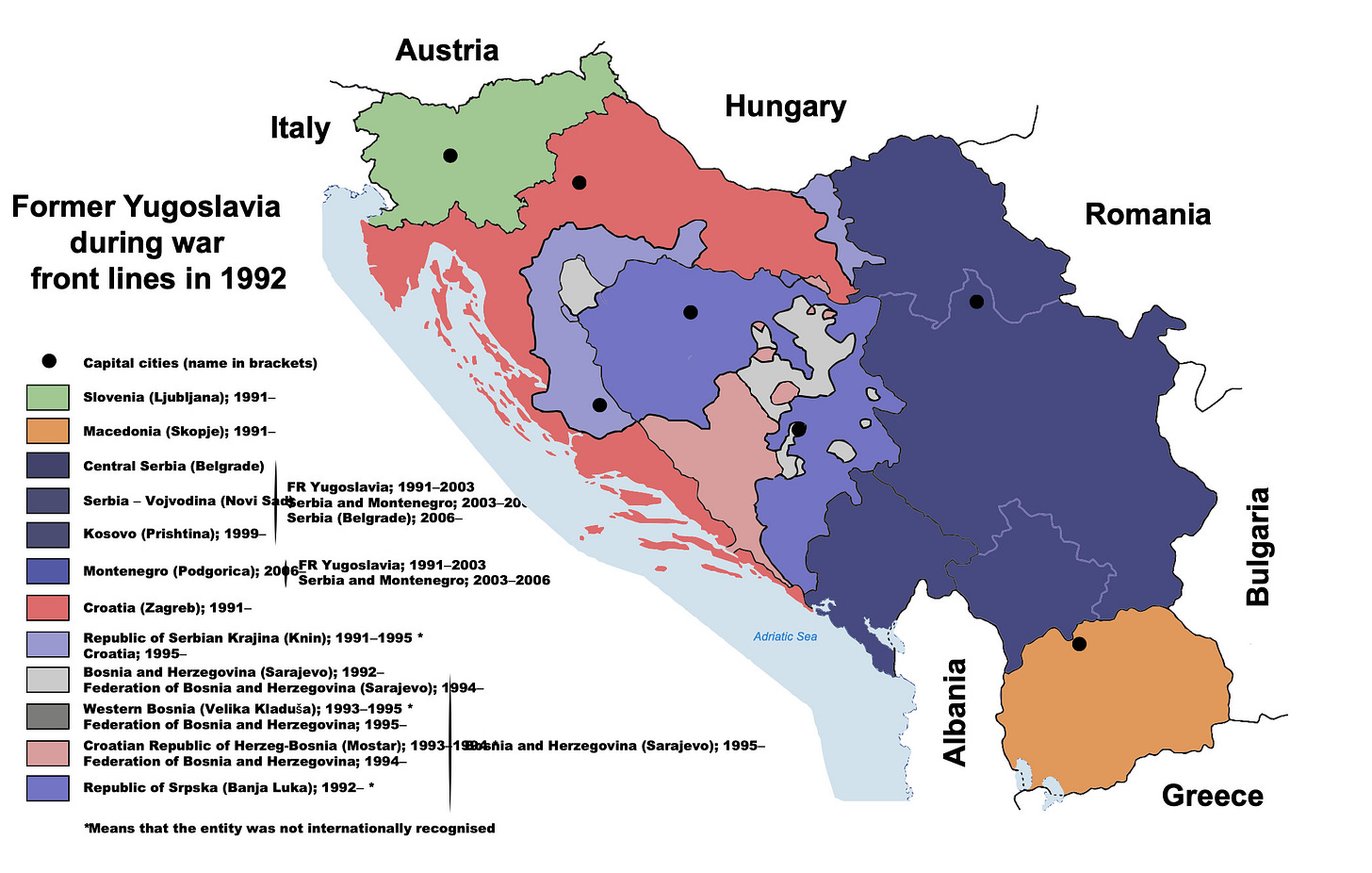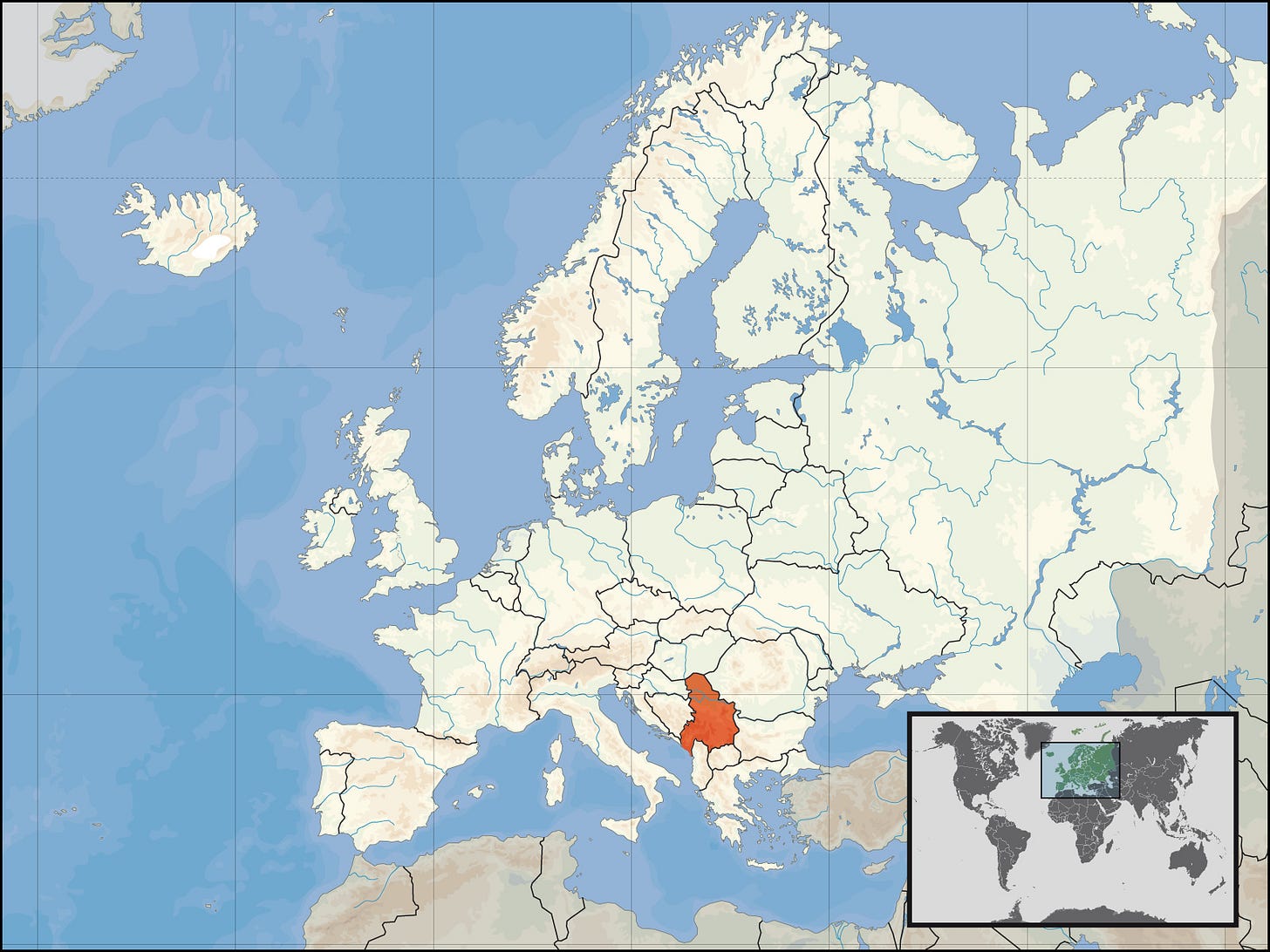S3E10. The Ghost of 1992 past, present and future
A brief summary of the second year of dissolution of Yugoslavia, exactly 30 years ago. Month by month, the timeline of the events by BarBalkans - Podcast, discovering the fate of the European history
Hi,
welcome back to BarBalkans, the newsletter (and website) with blurred boundaries.
On the occasion of the last episode of 2022, our tradition is to look back over the past year with BarBalkans - Podcast time machine.
If you are familiar with BarBalkans you already know - if you have recently joined us, you will discover soon - alongside the biweekly newsletter, there is a parallel path which follows the dissolution of Yugoslavia 30 years ago.
Month after month, BarBalkans’ articles/podcasts are taking us back in time, to the decade that sealed the fate of recent European history.
To kick off 1993 (or rather 2023) together, all you need to do is a small donation.
Every second Wednesday of the month you will receive an email, only for subscribers, with the story of what happened in that very month 30 years ago:
Today, we rewind the tape and discover the highlights of this year.
1992.
In this newsletter you will find the link to each episode. The text content is reserved to subscribers, but here you can get an overview of the events, while on Spreaker and Spotify you can freely listen to all the podcasts.
The second year of war
Following the truce between Croatia and Serbia at the end of 1991, a new year of violence is on the horizon.
In January, Slovenia and Croatia are recognized as sovereign States by the international community, Macedonia begins its troubled path and Bosnia and Herzegovina tries to follow the same track to independence.
Tensions between the different ethnic components of society - in particular between Bosniaks and Serbs of Bosnia - are increasingly evident, while the federal army begins to deploy a huge amount of forces on Bosnian territory and in the capital Sarajevo.
The situation is so tense that the mission of the United Nations UNPROFOR (United Nations Protection Force) is deployed in February. The UN Blue Helmets have to «create the conditions of peace and security necessary to reach a solution to the Yugoslav crisis» in Croatia and Bosnia and Herzegovina.
The Republic of Bosnia and Herzegovina declares independence at the beginning of March with 99.43% of the votes in favor (but the electoral base is only 63.4%).
Paramilitary squads of the two sides - Bosnian Serbs loyal to Belgrade and Bosnian Muslims supporters of the new Republic - fight throughout the Bosnian territory with more and more ethnic violence.
The war in Bosnia and Herzegovina
The war in Bosnia and Herzegovina breaks out in April with the bombing of Mostar and Banja Luka by the Yugoslav People’s Army (JNA) and the attacks by Serb paramilitaries in Eastern Herzegovina and Northern Bosnia.
On April 5, the siege of Sarajevo begins, as the Bosnian Serbs forces try to occupy the centers of power in the newly established Republic. From the hills above the city, snipers fire on the crowds asking for peace.
By the end of the first week of April, Sarajevo is a ghetto-city and the main street connecting the old city with the industrial area turns into the Sniper Alley.
The citizens resist the assault and do not allow the city centre to be completely surrounded: the Serbian plans for a blitzkrieg in Bosnia and Herzegovina fail.
The war continues also outside Sarajevo, showing all the atrocity of the ethnic cleansing realized by the Bosnian Serbs and supported by the Federal Army.
In May, a wave of mass killings and expulsions of non-Serb population takes place in Bosnian Krajina. Bosnians of the “wrong” ethnic group end up in concentration camps.
The President of Serbia, Slobodan Milošević, formally dismantles the Yugoslav People’s Army, leaving almost all weapons to the commander of the Bosnian Serb army, Ratko Mladić, while attacks on Sarajevo intensify.
After the massacre at the Markale market - broadcasted all over the world thanks to TV crews - the UN Security Council introduces sanctions against the Federal Republic of Yugoslavia for the very first time and a security zone around Sarajevo airport is established to allow humanitarian aid to flow in.
Despite the ethnic violence shown by the Serbs of Bosnia, the Western world is divided on a possible military intervention in Bosnia and Herzegovina.
The President of France, François Mitterrand, is particularly responsible for the political division, as in June he flies to Sarajevo to demonstrate his thesis that a civil war - not a military aggression - is taking place in Bosnia.
While the option of international military intervention disappears, a humanitarian aid airlift is established over the Bosnian capital.
Two big events - that change the balance of power - happen in July. First, the fracture between Bosniaks and Croats of Bosnia, when the latter set up the provisional executive power of the Croatian Republic of Herzeg-Bosnia in Mostar.
But it is the report by U.S. journalist Roy Gutman that shocks the international opinion, with the first map and estimates of internees in Serbian prison camps in Bosnia: 94 concentration camps to eliminate a specific ethnic component of society.
However, the report fails to break Western powers’ inertia, particularly on the hypocrisy of the embargo on all supplies of arms on Yugoslavia (which affects Sarajevo and Belgrade differently).
The diplomatic effort to put an end to the wars in the Balkans resumes vigorously in August: the International Conference on the former Yugoslavia convenes in London, with its 13 peace-building principles.
Meanwhile, during the night of August 25, Bosnian Serb forces deliberately aim at the Vijećnica, the National Library of Bosnia and Herzegovina that embodies the intertwined souls of Sarajevo. They destroy it, burning more than one and a half million ancient volumes.
Weapons and diplomacy
As the war in Bosnia and Herzegovina continues, tensions also increase between the citizens of Sarajevo and UNPROFOR, whose mandate limits the use of force exclusively to self-defense.
The Blue Helmets’ appeasement policy (not taking side in favor of any of the warring ethnic parties, in order to save as many lives as possible) leads the three ethnic components to increasingly ask for weapons to different international actors.
In September, Yugoslavia is expelled from the UN General Assembly: the Socialist Federal Republic of Yugoslavia has ceased to exist and the Federal Republic of Yugoslavia cannot inherit its seat.
Moreover, a no-fly zone is imposed over Bosnia and Herzegovina, while in October the armed tangle becomes increasingly inextricable.
After the agreement between Serbia and Croatia to normalize relations between the two countries, Muslims of Bosnia pay the consequences. This is how a new war front between the former allies Bosniaks and Croats of Bosnia opens up in Prozor, Novi Travnik, Vitez and Mostar.
Meanwhile, Serbs of Bosnia take advantage of the situation to conquer all the bridges between the two banks of the Sava River. The union of the Serbian Republics in Bosnia and Croatia is proclaimed, an intermediate step towards the creation of Greater Serbia.
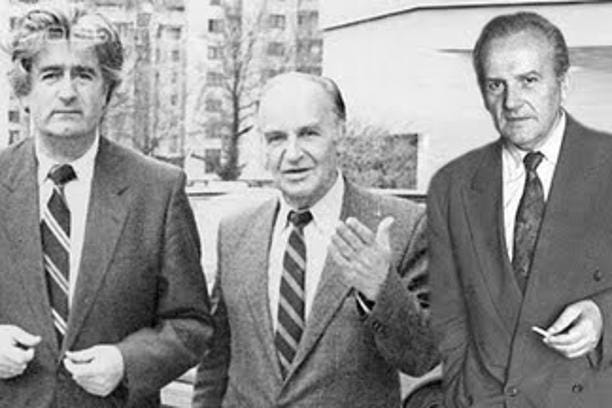
The end of the year is marked by the political confrontation between Milošević and the federal Prime Minister, Milan Panić, for the presidential elections in Serbia. With tangible consequences on the ground.
In November, Panić tries to convince ethnic-Albanian voters in Kosovo to support him. This is why Milošević’ narrow circle threatens a possible civil and religious war (Albanians against Serbs, Muslims against Orthodox).
In this scenario, several countries in the Islamic area would be ready to intervene in defense of Muslims of Kosovo (while they are financially supporting Muslims of Bosnia), with the risk of a geopolitical order’s collapse in the region.
On the other hand, Serbian nationalists look at the Russian “red-browns” - the communist and imperialist forces - as allies against the whole world.
The United States cannot allow this, also considering the results of the elections in Serbia in December. In addition to the re-confirmation of Milošević as President, a militarist, criminal, violent and illiterate nationalism triumphs in the Serbian Parliament.
This is why the “Christmas warning” is sent from Washington to Belgrade:
«In the event of a conflict in Kosovo provoked by Serbian action, the United States will be ready to deploy military force against the Serbs in Kosovo and against Serbia itself».
Pit stop. Sittin’ at the BarBalkans
We have reached the end of this piece of road and of this year.
Now, we deserve two specialities to warm up this winter day.
At our bar, the BarBalkans, we find a small glass of hot rakija, one of the most typical Balkan Christmas drinks, very easy to prepare.
And then there is a cup of kuhano vino, the Balkan mulled wine. The wine is boiled with a combination of nutmeg, cloves, cinnamon, sugar, orange juice and zest.
Let’s continue the BarBalkans journey. We will meet again in two weeks, for the 11th stop.
A big hug and have a good journey!
Your support is essential to realize all that you have read. And even more.
Because a job well done - always aiming to improve - needs many hours and energy, taken away from free-time.
Studying, interviewing, organizing trips and events, translating articles and newsletters for the bilingual newsletter (Italian/English) and recording the monthly podcast on the dissolution of Yugoslavia.
An independent project like this cannot survive without the support of the readers. For this reason I propose you a
Regardless of what you decide, thank you. From the bottom of my heart.




